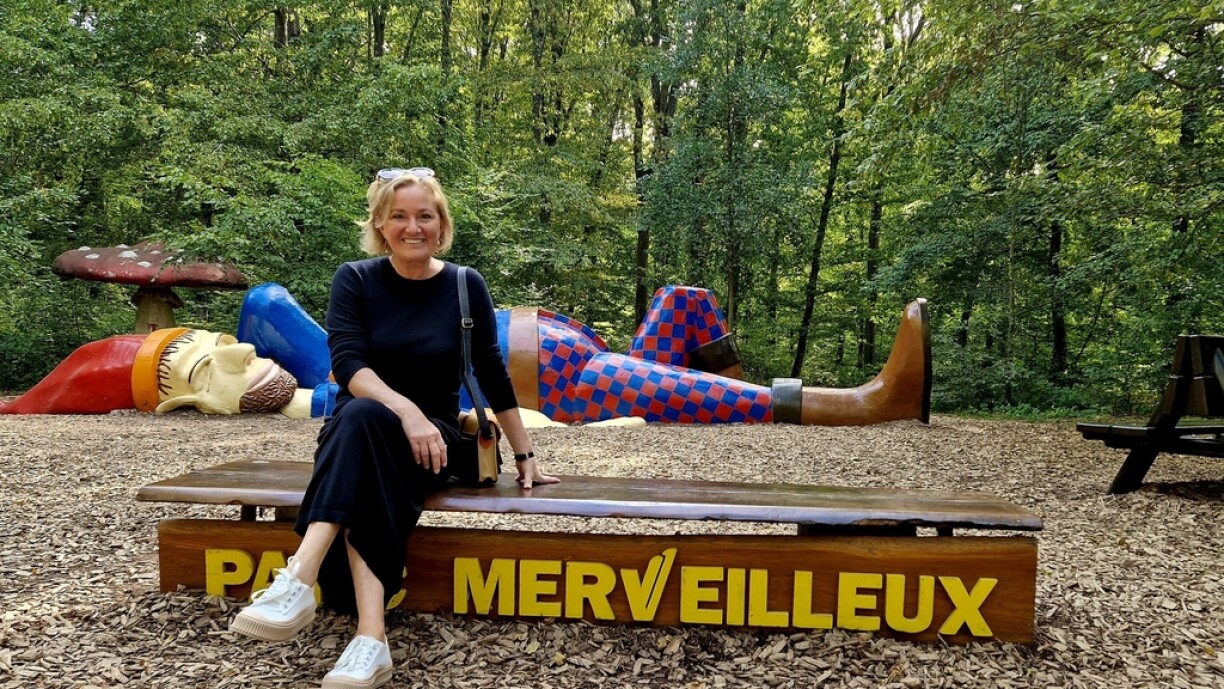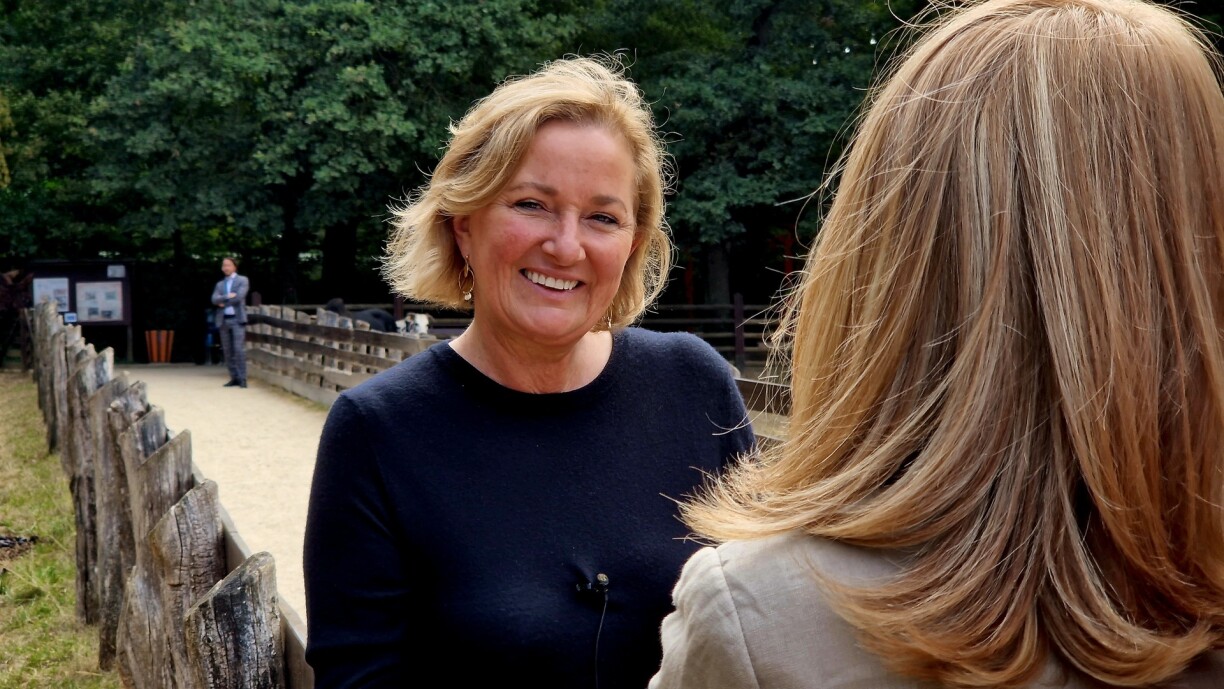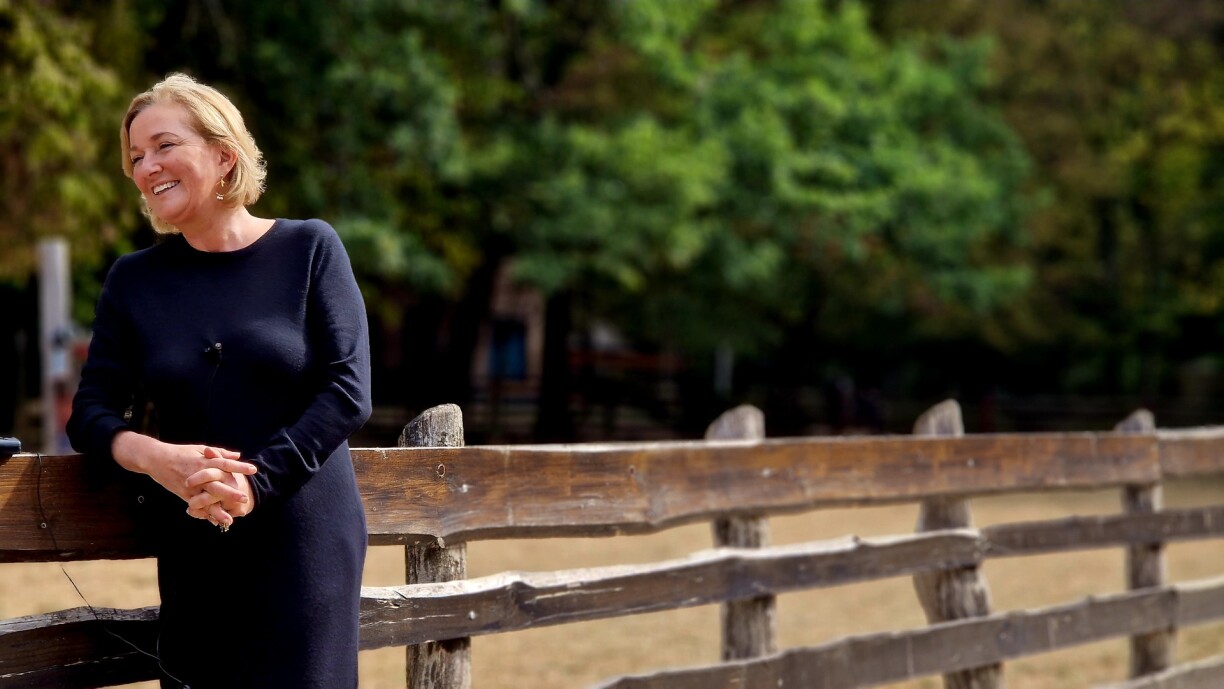
The Minister of Health and deputy Prime Minister selected the Parc Merveilleux in Bettembourg as the backdrop for her interview, citing many of her fond childhood memories, and later with her own children, as the reason for her choice of locale. She says she has always liked parrots, photographing selected birds to show her daughters later.
Lenert’s children have since grown up and moved abroad, which she thinks makes life easier for them. Thrust into the spotlight as health minister during the coronavirus pandemic, Lenert is frequently recognised these days, receiving much public attention and discussion - both positive and negative - relating to the country’s handling of Covid-19.
Virtually overnight, Paulette Lenert went from the relatively unknown Minister of Cooperation and Consumer Protection, to the crisis manager bearing responsibility for the pandemic. After heading up numerous press conferences, she says “when we were able to go out again, I was suddenly recognised a lot more. It took a lot of getting used to.”
As with most of her public appearances, Lenert is accompanied by a security officer during the RTL interview. When questioned, she explains he has had to intervene on a number of occasions when members of the public have overstepped - particularly when Lenert has been approached by anti-vaxxers. “This is why I can’t walk around town by myself, or go shopping alone, and so on.”
Lenert believes this restriction means she still has much to achieve. “A part of me is saying very clearly, ‘You’re not done here’. I definitely need a few more years to solidify the plans I’ve put in motion, in order to be satisfied with my work.” This saddens her a little, with the elections looming. “This is the first time in my life I feel I have no control over what happens with my career in the autumn.”
Find the whole interview in Luxembourgish below.
The minister would like to carry out her own projects, particularly in the field of mental health.
When asked which position would attract her the most in the next government, Lenert declined to give a straightforward answer. Her first objective is to emerge stronger from the elections. But she admits: “If you’re standing as the head of the list, you naturally have the ambition to run for Prime Minister.”
In addition to the responsibility as the LSAP’s head of the list of candidates, Lenert is the first woman to have a real chance of achieving the top job - a fact she is well aware of. She says young women have approached her to tell her how important this is to them, as she is setting an example.
Lenert says she does not necessarily agree with the assertion that in Luxembourg, it seems as though candidates have a better chance of achieving a career in politics if they make a lateral career move. However, few counter-examples came to mind.

The low numbers of women in politics is likely a consequence of the traditional family mode, in which men were given the opportunity to concentrate on what they considered essential, at the expense of women. Lenert says she believes this is changing more and more, and she could envisage the use of quotas to accelerate this development.
Political engagement takes up a lot of time, which leaves less time to juggle family life. Lenert is well aware of the difficulty in balancing family and work. “I got divorced at an early age,” she says. “At the time, I couldn’t have imagined leaving my children in childcare so I could become politically active in addition to my full-time job.”
It is increasingly common in today’s families for both parents to work full-time. This means new models of working hours should be considered, Lenert says. Humans should be able to take advantage of innovations in the world of work, and also be able to anticipate what the jobs in the future would look like.
The minister does not hesitate to bring these issues up with employers. “During my time at the Ministry of the Economy*, I noticed that many innovative ideas come directly from businesses.”
* From 2010 to 2013, Paulette Lenert was First Adviser to the Department for the Social and Solidarity Economy of the Ministry of the Economy.
Lenert considers the conflict with Luxembourg’s doctors to be her biggest failure in this parliamentary term. She says she was surprised at how quickly discussions faltered, and wonders how this could have happened despite her constant contact with doctors’ representatives. In addition, she says she felt they successfully collaborated during the pandemic.
The minister requested a review by objective external experts to assess what went right and wrong during coronavirus in Luxembourg, hence why Luxembourg collaborated with the OECD and continues to do so with the WHO. She says she is sure no political aspects came into play in this regard.
If Lenert were to be appointed Prime Minister in October, she says she would concentrate above all on national issues, with housing being an obvious first priority. There should be more rental units offered by public landlords, she says.
She also believes there is work to be done in terms of procedures. “For me, a strong factor in a country’s attractiveness is quick progress. I am convinced there is still room for improvement.”

The housing crisis primarily affects low-income households, while the gap between rich and poor has continued to widen in recent years. Lenert intends to combat this, saying integration has always been one of Luxembourg’s greatest assets, and it is vital to maintain that.
The index system can only work in the long term if a balance is created by tax reform, the minister adds.
Lenert does not consider the fact that tax reform was not implemented in accordance with the coalition agreement a failure; however, she says the LSAP has always believed that structural change through tax reform should have been possible.
In the future, she says there should be a more targeted use of money.
Lenert says she hopes the conflict in Ukraine will have been consigned to history by 2030, leaving Luxembourg in a Europe without war. “I hope we will live in peace here and our growth will be well integrated. This is something really close to our hearts, the integration in Luxembourg. It’s one of the main things that motivates me to work in politics. I have always appreciated that in this country, and the foreigners who live here appreciate it. We have so many different nationalities, it’s something beautiful, it’s a wealth for our country.”
However, despite the value she attributes to maintaining a peaceful coexistence in Luxembourg, Lenert is aware that issues need to be addressed. “It goes beyond the housing problem we have, and the health system is under pressure. To keep our growth fair, and keep everyone on board without stretching our infrastructure - that is important to me.”
Lenert says the first thing she would do is sit down with her team. “We’d need to ask, how are we going to work as a team, how shall we operate and fit together? That’s very important to me. Some issues, such as housing, are prioritised by all parties. I’d certainly declare it a priority. But strengthening the team is also important to me, figuring out how we define ourselves and what our work processes will be. I would say that is what I would take care of for the first few weeks.”
“I don’t have a preference,” Lenert says. “I think I can get along with a lot of people. I have to say, though, we are functioning very well as a team at the moment, there’s a good atmosphere. But I do think I could work with others. I really like working as a team so it isn’t something that worries me. And I think, no matter who your partner is, you can achieve something good together.”
Lenert does not see where the LSAP could find common ground with the ADR. She adds that The Left (Déi Lénk) are not on the same wavelength in terms of foreign policy either, although it has similar views on subjects such as the fight against poverty.